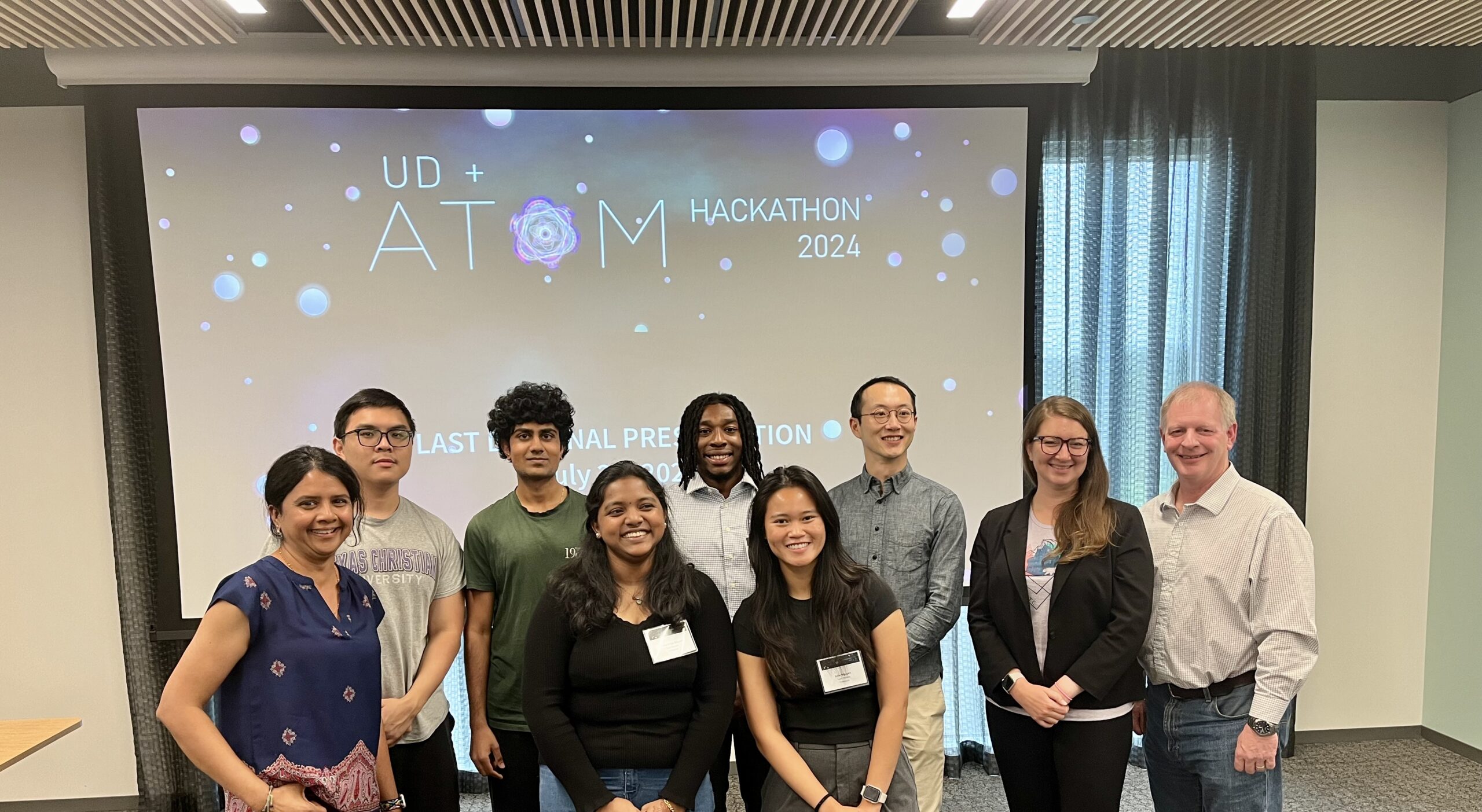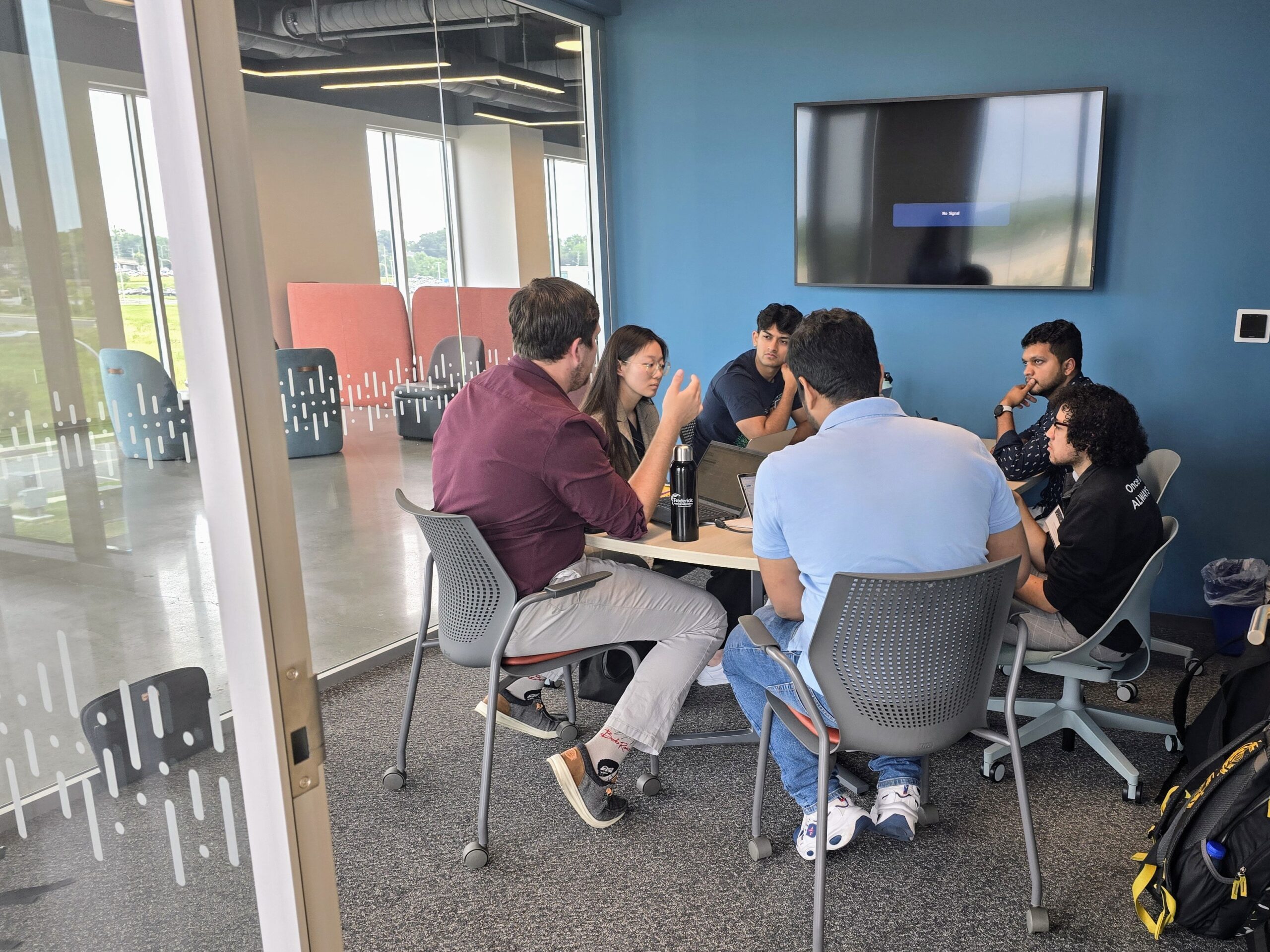No one had planned on the University of Delaware’s ATOM hackathon to draw students from outside of the immediate area.
But there, along with students from University of Delaware (UD), Delaware State University and Maryland’s Bowie State University were students from Penn State, Northeastern University, Berkeley and University of Southern California.
“It was a pleasant surprise,” Sunita Chandrasekaran, associate professor in UD’s Department of Computer Information Sciences, told Technical.ly.
Chandrasekaran was among the organizers of the event, an interdisciplinary hackathon that combined healthcare, computer science and artificial intelligence. ATOM, which stands for Accelerating Therapeutics for Opportunities in Medicine, is a National Cancer Institute and Department of Energy collaboration. Its software pipeline for building and sharing models was used to approach the questions posed to the hackathon teams.
The questions and tasks proposed varied from team to team but all used the ATOM Modeling Pipeline (AMPL), an open-source, software pipeline that includes model building, data curation and molecular property predictions.
The AI component offered experience with the technology along with other skill building, not least of all learning to work with people from other disciplines. Chandrasekaran, who is also codirector of UD’s Artificial Intelligence Center of Excellence, wants to see more high impact AI use cases that use the technology in a precise way, rather than hype-driven applications that add to the AI skepticism.
“We need to use it to complement some of the mundane tasks we coders do,” Chandrasekaran said, stressing that it is best used as a tool, not the main event. “But then you need to know where to stop, you don’t abuse it.”
Eleven teams of about five people each hunkered down in conference rooms on the 4th and 5th floors of the Fintech Innovation Hub building at UD’s STAR Campus for three days last week for the hackathon, with sponsors including Labware, Tech Impact, Collaborative Drug Discovery Vault, NIIMBL and Amazon Web Services.
“Mostly they are working on software improvements, enhancement, adding new features to solve problems,” said co-organizer Naomi Ohashi of Frederick National Laboratory for Cancer Research (FNLCR), one of the companies whose software teams are working with.
On the third day, the teams presented their projects and a panel of judges selected the winning teams. Here’s the full list.
Decay Detectives wins technical complexity
The team focused on studying the role of a hyperparameter of neural networks known as weight decay, a regularization technique that makes the models simpler. It aims to help the models generalize better to test data.
Mentor: Vineeth Gutta, PhD student, UD computer and information sciences.
Team: Jay Shah, PhD student, UD chemical engineering; Giorgi Gvalia, PhD student, UD computer and information sciences; Tatiana Acello-Cuellar, PhD Student, UD physics and astronomy; Janiya Davis, undergraduate student, Bowie State; Lauren Olsen, PhD student, UD computer and information sciences
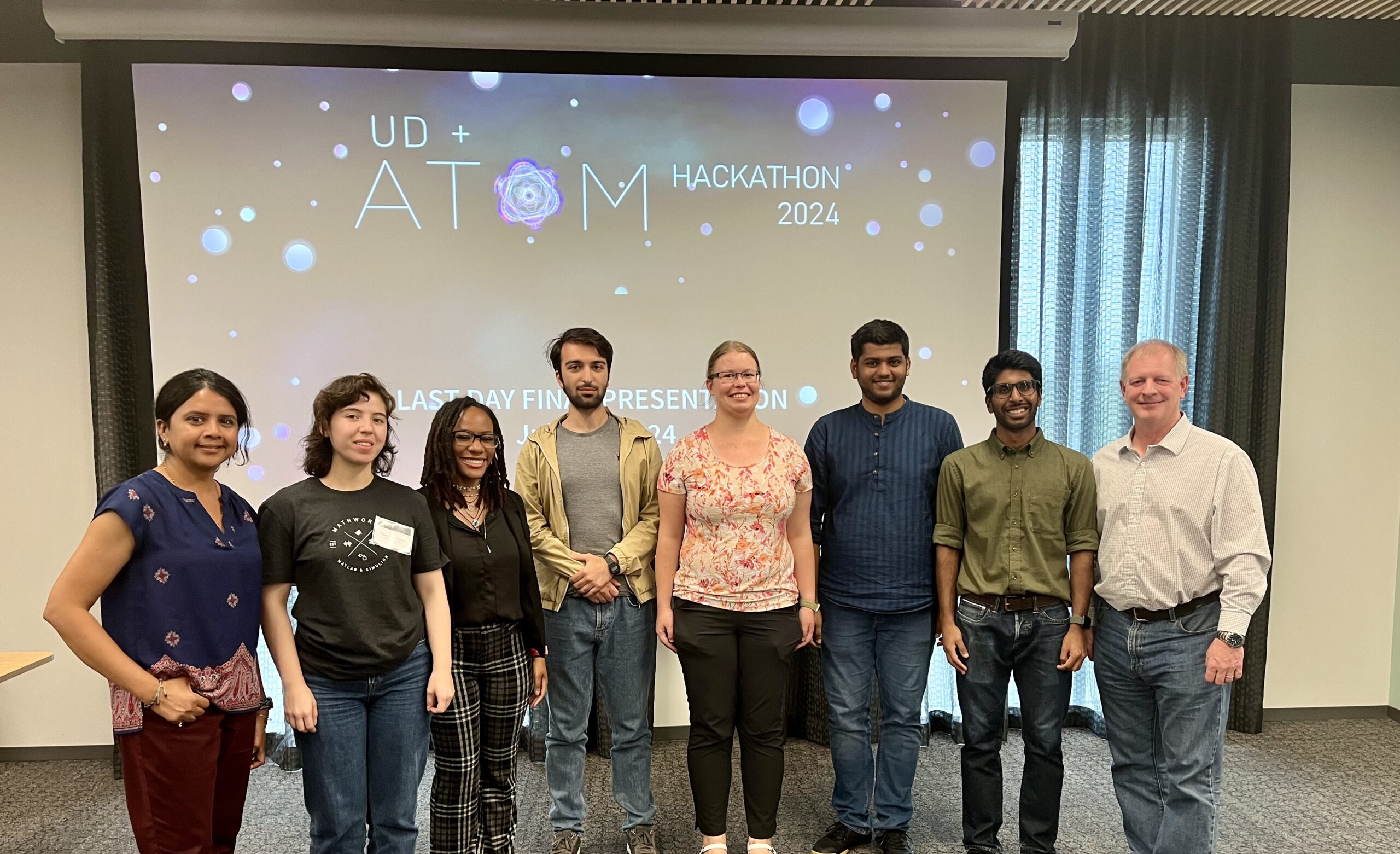
CompTox wins problem statement execution
The team addressed whether predictive and generative modeling of toxicity increases the throughput of drug discovery, while recognizing the dangerous potential of misuse of AI-powered drug discovery. This demonstrated the potential of predictive and generative modeling in that industry.
Mentor: Pinyi Lu, FNLCR
Team: Logan Hallee, PhD student, UD bioinformatics; Niko Rafailidis, PhD student, UD bioinformatics; Tom Le, undergraduate student, UD biomedical engineering; Colin Horger, undergraduate student, UD biomedical engineering; Nikhil Rao, National Center for Atmospheric Research
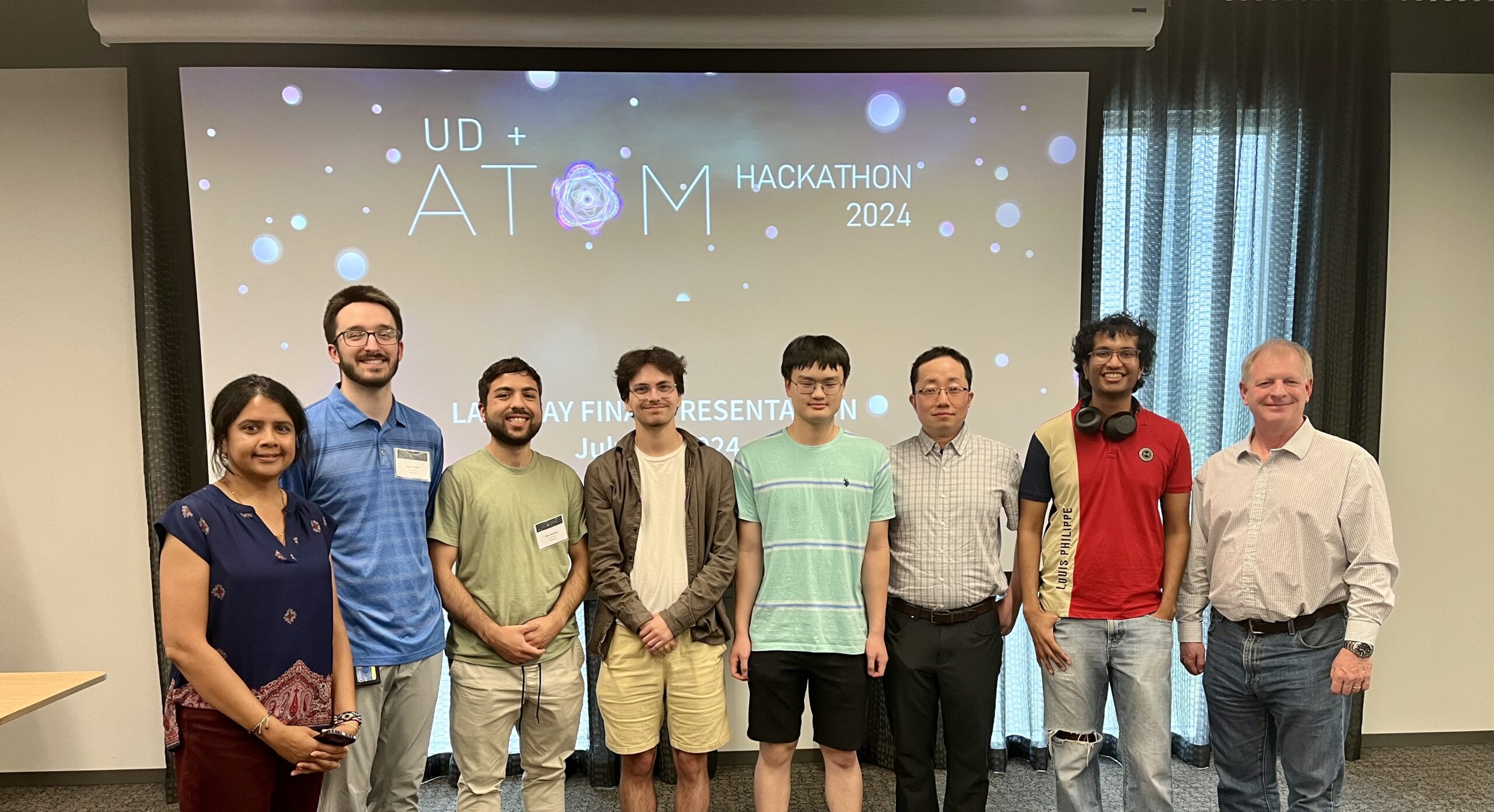
CodeGuardians wins for creativity and originality
The team applied static analysis tools to AMPL to help identify and correct potential errors, enhancing the overall quality of the software for future releases. These changes should facilitate smoother onboarding for new users and boost adoption rates.
Mentor: Herman Singh, MassMatrix
Team: Nihaal Chowdary Surpani, graduate student, UD data science; Vasavi Prasanna Kurapati, graduate student, UD data science; Saieda Ali Zada, undergraduate student, UD computer and information sciences; Joel Duah, undergraduate student, Bowie State Biology
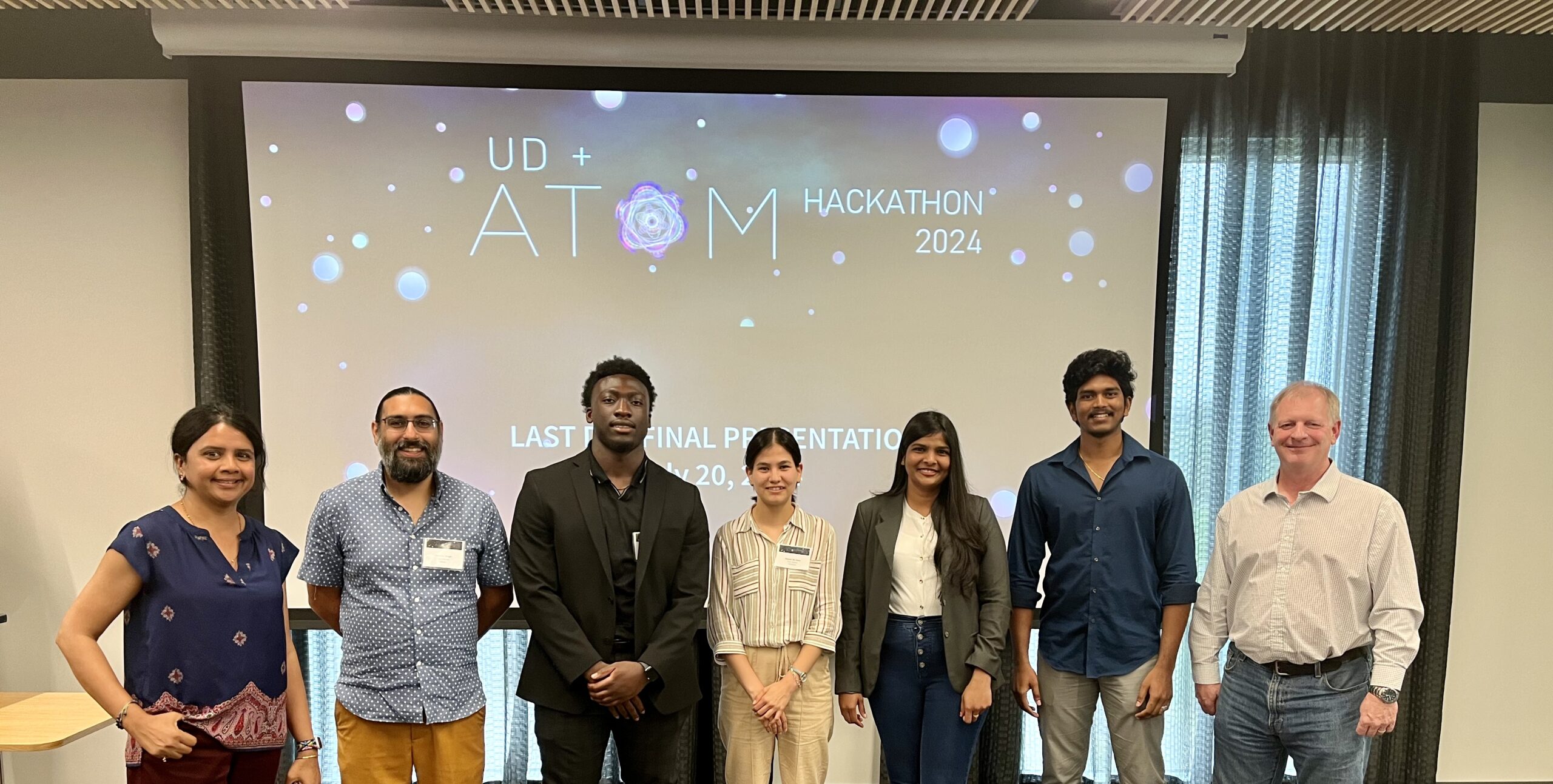
Team Amanda wins for remarkable impact
The team worked on improving AMPL’s code base by adding new model types and functionality, making additional models available in the pipeline for others to use.
Mentor: Amanda Paulson, University of California, San Francisco
Participants: Peng He, Incyte; Nikhil Dhanankam, PhD student; UD computer and information Sciences; Andrew Kallai, undergraduate student, UD computer and information sciences; Natalya Armenta, undergraduate student, Bowie State Biology

Team Paulson wins honorable mention
The team worked on building a predictive model for Drug-Induced Liver Injury using cell and biochemical assay data.
Mentor: Amanda Paulson, UCSF
Team: Wengang Zhang, National Health Institute; Kien Nguyen, PhD student, UD computer and information sciences; Julie Nguyen, PhD student, UD bioinformatics and data science; Jaden Clarke, undergraduate student, Delaware State Biology; Divy Gabbireddy, undergraduate student, Penn State computer and information sciences; Lalitha Priya Sripathi, undergraduate student, UD business analytics
